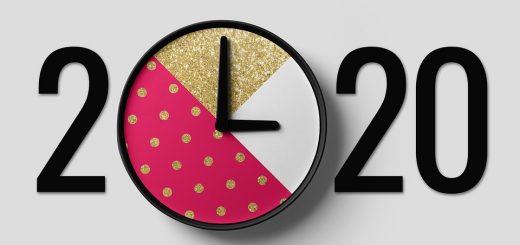How to Reduce Vocal Fatigue
Japanese voice over actor Kaori Sadohara, known in the anime circles for her voice roles in Date A Live as Tamae Okamine and Inari Kon Kon as Chika Marutamachi, has taken some time off from her voice acting work due to vocal cord fatigue. This is not the first, nor will it be the last that we will hear of a voice actor suffering from some vocal illness. When you are in the business of ‘voice’, overuse and misuse of voice can happen. Vocal strain, hoarseness and vocal fatigue however can be avoided when you take steps to care for your voice.
The fear of losing out on opportunities to audition or sometimes the fear of saying no to some “throat ripping” vocal sessions can make a voice talent push themselves to the limits of what their voice can do. It is the fear of jeopardising a possible gig or a current project that makes you forget about your vocal safety. But protecting your voice is as important to you as it is to your agents, clients and producers. It is not just the NOW that you need to secure, but you also need to protect your future livelihood and your client’s investment in hiring you.
Understanding Strength, Stamina and Fatigue
According to the article Fatigue in Skeletal Muscle, “An individual’s capacity to perform during high-intensity exercise depends upon his/her ability to generate and maintain a high power output. That ability requires both a high anaerobic capacity and the functional ability to generate the necessary force and velocity for a given power requirement. The inability to maintain the desired power output defines fatigue.” In a nutshell, when you experience fatigue, you are essentially running out of fuel faster than you can replenish.
When athletes want to increase their muscular stamina they do resistance strength training. Their aim is to improve their ability to consume and replace their fuel. This is achieved by working their muscles to the point of fatigue and then allowing it to recover. It will respond to the taxing and injury by building itself back bigger and stronger.
As vocalis or other laryngeal muscles are composed of skeletal muscle fibres, some voice actors work these muscles out at a breaking point thinking that once recovered they will have better resistance to vocal fatigue. Strengthening your vocal cords may not cure vocal fatigue as the muscle fibres are few and does not have the room for them to get bigger. Using the same concept of “lift with your legs, not your back”, focus your strength training on the bigger muscles that support your vocal instrument, this being the muscles you use for breathing management.
Trained vocal artists are taught to optimise and regulate the airflow or air pressure in their vocal tract. The more compressed and concentrated the air in your lungs the greater the power to vibrate your vocal folds and assist you in your articulation and range. Deep breathing exercises and breathing management can train your lungs to absorb and release air that helps lessen the stress in your vocal folds.
In an article by Harold Sconiers in Livestrong.com, he shares 3 breathing exercises to improve lung capacity and strength.
- Pushing Out
Assume an upright posture, preferably standing on flat ground. Keeping both knees loose, bend over from the waist, simultaneously pushing out all air from your lungs. Slowly return to a vertical position, inhaling at an equal rate. Fill your lungs to the greatest degree comfortably possible and hold this breath for a count of 20. If 20 seconds it too long, choose a timing that you can manage. While counting, extend both arms fully overhead. Relax, lower your arms and exhale slowly. Complete this cycle four times.
- Rib Stretch
Standing upright, expel all the air from your lungs. Slowly breathe in, expanding your lungs to maximum capacity. Hold the air for as long as 20 seconds. While counting, rest both hands on your hips, thumbs facing front with pinkies touching in the small of your back. Release the air slowly and relax. Repeat three more times.
- Abdominal Breathing
Lay in a comfortable position on your back. Rest one hand on top of your abdomen and the other on your chest. Breathe in deeply and slowly, pulling from your mid-section. When done correctly, the hand on your belly will rise higher than the other. Exhale slowly and completely through the mouth. Inhale fully through the nose, holding your breath at the end for seven seconds if possible. Slowly breathe out for a full count of eight. Squeeze your abdominal muscles toward the end, in order to discharge any residual air. Breathe in this way for five complete cycles.
You may consult and work with a vocal coach or vocologist to assist you further in your breathing management and improving your vocal stamina.
Care for your Voice
Apart from breathing management to lessen the stress and strain in your vocals, here are some tips to prevent voice problems.
- Hydration
Drinking plenty of water will help lubricate your vocal folds which it needs to vibrate efficiently. Minimise intake of alcohol and caffeine as it can cause the body to lose water and they can also irritate the mucous membranes that line the throat.
Dry environment can also affect lubrication. The cause can be from gas furnaces, air conditioners, and climate with a low amount of moisture in the air. Use a humidifier in your home, especially during winter or in dry climates. Thirty percent humidity is recommended.
- Avoid Unnecessary Strain
Avoid talking in noisy places. Trying to talk above noise causes strain on the voice.
Do not cradle the phone when talking. Cradling the phone between the head and shoulder for extended periods of time can cause muscle tension in the neck.
Throat clearing and harsh coughing are also traumatic to the vocal cord. Minimise stress in the vocal cords by using a productive cough: take in as deep a breath as possible, momentarily hold your breath, push the chest and abdomen inward with as much strength as is possible, and produce a silent “H” sound while you expel the air.
- Watch your Intake
Include plenty of whole grains, fruits, and vegetables in your diet. These foods contain vitamins A, E, and C. They also help keep the mucus membranes that line the throat healthy. Avoid eating spicy foods. Spicy foods can cause stomach acid to move into the throat or esophagus.
Watch out for side-effects of some medicines or drugs. For example, antihistamines for allergies can cause dryness but some nasal steroid sprays can relieve symptoms of nasal allergy without the drying side effects. Anti-inflammatory drugs should also be used with caution as they cause platelet dysfunction and this may pre-dispose to bleeding. Hormone medication may cause virilization of the female larynx and a loss in the upper vocal range.
- REST
Get plenty of rest as physical fatigue can have a negative effect on your voice.
Work with Your Team
As mentioned earlier, it is also in the best interest of your clients and producers that you stay vocally fit. Before working on a vocally demanding project, have a discussion with your agent, directors and producers and learn how much vocal strain is expected from the project. Learning as much as you can beforehand will help minimise the multiple takes than can be a waste of your voice and effort. Plan out with them on what to do and when to do the demanding parts, ideally this should be done at the end of the session. Don’t be afraid to ask for a break when you are feeling the strain.
You alone know your strength and what your voice can do, so you have the responsibility and control in protecting your voice. Think of it as a race, but the common goal is not about finishing first, but finishing well.















